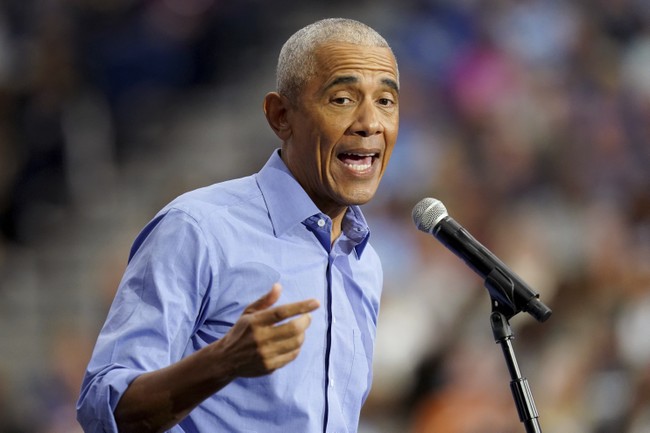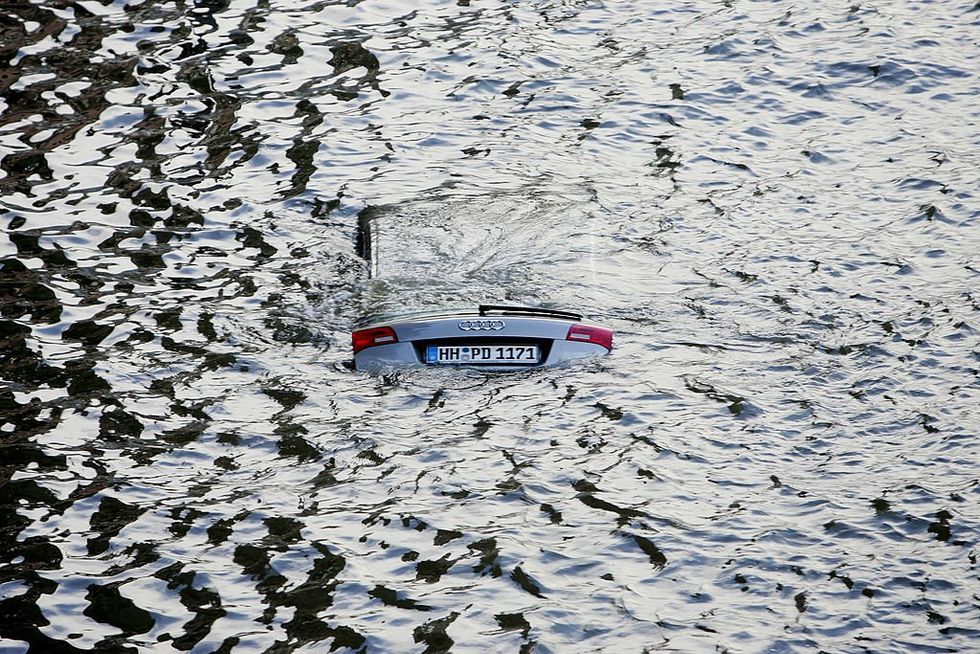
www.dailysignal.com
Prayer Works, According to Science
The role of prayer in civil society has emerged in the wake of the Annunciation Catholic School shooting, and this may be a blessing of sorts amidst the tragedy.
This is because scientific research has shown time and again that religious faith and the practice of prayer check pathologies and improve quality of life on almost every level.
However, politicians and commentators belittled “thoughts and prayers” as ineffective in preventing other mass killings. Others, from Vice President JD Vance to Bishop Robert Barron to Franciscan University, were quick to emphasize prayer’s importance in moments of anguish and darkness. The U.S. Department of Homeland Security even tweeted, “Pray without ceasing.”
Both, in some sense, recognize a deep societal sickness has gripped America’s youth for decades, albeit reaching different conclusions. Yet the precipitous rise in anxiety and depression among younger demographics has been coupled with the collapse of regular prayer and religious practice. This should not go unnoticed: the stock of scientific evidence shows prayer produces psychological benefits, reducing stress, loneliness, and fear, as well as increased connection to community. Religious people often live longer too.
In short, those who pray are generally happier.
In extreme cases, a lack of spiritual purpose and practice can contribute to isolation and pathologies culminating in self-harm and hatred and violence toward others. Robert “Robin” Westman—the transgender Minnesota shooter—is such a case. His manifesto reveals a twisted spiritual battle, even so far as depicting his reflection as a demon.
Prayer, however, is not a simple psychological activity, ritual words and postures, or an irrational “neurosis” as Sigmund Freud asserted—but physically, emotionally, and spiritually efficacious with wider implications for an individual and society at-large.
In a religious context, prayer is conversing with God Himself. It allows space to not only offer intentions and discern His will for our lives, but to draw strength for the spiritual battle against Satan and the principalities of darkness, as the Catechism of the Catholic Church states. Indeed, the practice is a “vital necessity” for the soul, in which one deepens their relationship with Him.
Detractors, however, would want us to believe otherwise—and the Devil applauds.
Indeed, since the new millennium, fewer Americans are praying. A 2025 Pew Research Center survey found that 44% of people pray each day, which is a decline from 2007, when 58% prayed at least once a day. The report suggests the rise in religious unaffiliates—or “nones”—and the decline of “self-reported frequency of prayer” among Catholics and Christians are the main factors in waning worship.
However, for decades, young teens have not only been influenced by the New Atheists, poor catechesis, and mass apostasy due in part to the horrific clerical sexual abuse scandal, but a lax religiosity known as moral therapeutic deism. In Christian Smith’s Soul Searching: The Religious and Spiritual Lives of American Teenagers (2005), he argues that “religion is widely practiced and positively valued by teens, but also de-prioritized and very poorly understood by them.” This belief system affirms adopters to be nice; that God exists to make one feel good; God is distant; all good people go to heaven; and to not act evil.
Spiritual rigor, therefore, is deemed unnecessary. But God is not merely a spiritual ATM, as Father Mike Schmitz—host of “The Bible in A Year” podcast—emphasizes. Moreover, worldly ambitions and pleasures cannot sustain us, failing to fill the “infinite” caverns of our hearts, which St. John of the Cross describes. Only God can do so since He is infinite.
Yet the past few years have wrought particularly hard circumstances: the pandemic, voluminous social media and pornography usage, anxiety toward artificial intelligence, widening polarization, cultural unrest, and an increasingly unattainable American Dream.
But even in the midst of those worldly plights, God—who is love itself—gives our lives meaning; and prayer is the avenue to approach Him. Certainly, once can surmise Westman—who clearly endured mental and spiritual illnesses—shunned prayer when it mattered most. In the end, he lost the spiritual fight.
Thankfully, Generation Z and millennials are beginning to realize prayer’s importance through consistent religious practice. Young adults have flocked to the Catholic Church in order to find purpose and stand athwart the “cultural drift,” according to the New York Post. Indeed, young adults are “now the most regular churchgoers, outpacing older generations, who once formed the backbone of church attendance,” according to a recent Barna study.
In the wake of mass shootings, policymakers and media personnel often advocate for gun or mental health reforms. While these may be well-intentioned, they mask the persistent underlying “happiness crisis” confronting Americans. Beyond the physical realities, as scientific studies have demonstrated, prayer’s metaphysical and spiritual fruits are more transformative to mind, body, and soul, deepening our filial trust in our Creator. In prayer, we know God loves us—even in the darkest trials of life.
That, in turn, impacts how one participates in and engages with civil society, which religiously affiliated persons are more inclined to do.
In the spiritual battle for America’s soul, we should not ignore science: prayer is necessary to combat the social ills of the age in order to build a more vibrant, connected society. Unlike what some commentators suggest, the United States needs a resurgence of prayer—not less. The empirical evidence proves as much.
Instead, we should seek His wisdom; recognize the spiritual war we are all engulfed in; and strive to do His will.
May the victims of the Annunciation shooting be with the Almighty God. May God bless our politicians and commentators. And may we reignite a spirit of prayer—and pray without ceasing.
Originally published by RealClearReligion.
We publish a variety of perspectives. Nothing written here is to be construed as representing the views of The Daily Signal.
The post Prayer Works, According to Science appeared first on The Daily Signal.















